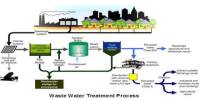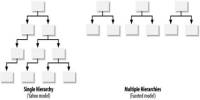The employee grievance may be any genuine or imaginary feeling of dissatisfaction or injustice which an employee experiences about his job and it’s nature, about the management policies and procedures. It refers to the dissatisfaction of an employee with what he expects from the company and its management. It is the perception of unfair treatment on the job. There are many factors that make employees unhappy.
For instance, when an employee is not given promotion which is due to him or when work conditions are unsafe, grievances of an employee relating to these issues are based on facts. In other words, these grievances reflect the drawbacks in the implementation of the organizational policies.
Sources of Employee Grievance
The grievance is a feeling of unfair treatment at work. It can result from the dissatisfaction of work. Speaking broadly, a grievance is any dissatisfaction that adversely affects organizational relations and productivity. In this regard, sources or causes of grievance can be anything that results from dissatisfaction or involving wages, working hours, or conditions of employment are the basis of the grievance. The causes or sources of grievance are classified into three categories as follows:
Management Policies
Any change in the organizational policies can result in grievances. For example, the implementation of revised company policies or new working practices. The policies and procedures adopted by management give rise to the grievance. The autocratic or bureaucratic style of management, for instance, is hardly liked by educated masses. But they favor rather a participative style of management. Similarly, management practices also lead to employee grievance at work as they want to exploit employees through a reduction in pays and other benefits. Grievances resulting from management policies are:
- Wages rates or scale of pay
- Overtime
- Leave
- Transfer improper matching of the worker with the job
- Seniority, promotion, and discharge
- Lack of career planning and employee development
- Lack of regard for collective agreement
- Hostility towards a labor union
- The autocratic leadership style of supervisors.
Working Conditions
Working conditions are relative to the work environment of the organization. It may be undesirable or unsatisfactory conditions of work. For example, light, space, heat, or poor physical conditions of the workplace, defective tools and equipment, poor quality of material, unfair rules, and lack of recognition. If the working environment of the company is good, employees will get fewer places for grievance. Grievances resulting from working conditions are:
- Unrealistic environment
- Non-availability of proper tools, machines, and equipment for doing the jobs
- Tight production standards
- Bad physical conditions of workplace
- Poor relationship with the supervisor
- Negative approach to discipline
Personal Factors
Personal factors are related to the personality traits of individuals. Employees are unable to adjust with their colleagues, suffer from feelings of neglect and victimization and become an object of ridicule and humiliation or other inter- employee disputes. Sometimes, these personality traits also cause the emergence of grievances at work. Some important personality traits that result in grievance are:
- Over ambition
- Narrow attitudes
- Excessive self-esteem
- Gambling and fault finding attitude
- Mental tension
Information Source:
















